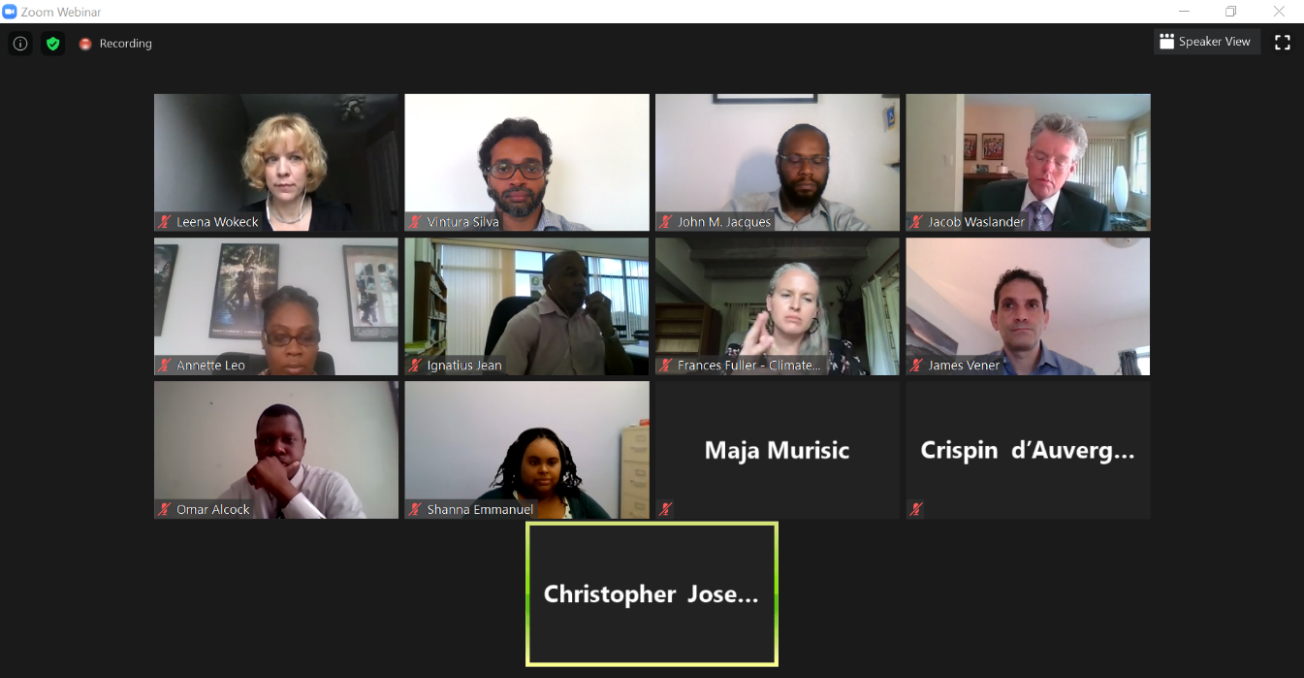OECS and NDCFI Host Experience Exchange Session
Media Release Courtesy UNFCCC
On 23 July, 2020, The Organisation of Eastern Caribbean States (OECS), as part of Caribbean NDC Finance Initiative (NDCFI) hosted a webinar entitled Caribbean Nationally Determined Contributions (NDCs) Revision: Where Are We?
The NDCFI is a joint venture by the OECS and the Government of Saint Lucia. This initiative is also supported by the UNFCCC, the NDC Partnership (NDCP), and the Deutsche Gesellschaftfür Internationale Zusammenarbeit (GIZ).
The NDCFI was established with the aim of providing support to the Caribbean region and OECS members with the implementation of NDCs. Among the numerous areas of involvement, the NDCFI facilitates collaboration and peer learning, a goal achieved during the webinar.
Other objectives of the webinar included:
- Allowing Caribbean states to share their progress and experiences in the revision of their respective NDCs.
- Obtaining an indication of what will be contained in the new NDCs.
- Facilitating the sharing of lessons learned, challenges and best practice which may be of benefit to countries that are less advanced in the revision process or for future NDCs.
- Providing stakeholders and prospective partners with an indication of the needs and opportunities for engagement and support that will be required to successfully implement the new NDCs.
- Allowing development partners to share experiences and areas of potential support available to countries for revision and implementation activities.
The panelists represented three groups: country representatives, partners, and private sector representatives. Country representatives Omar Alcock] (Jamaica), Shanna Emmanuel (Saint Lucia), and Christopher Joseph (Grenada), advised peers to allocate sufficient time for the review process and stressed the importance of engagement with stakeholders and partners as well as the alignment of sustainable development goals (SDG) with NDCs. Common challenges were the availability of quality data, data collection and resource mobilization.
The partners Vintura Silva (UNFCCC), James Vener (United Nations Development Program), Frances Fuller (Climate Analytics), Kristin Deason (Global Green Growth Institute), Jacob Waslander (World Resources Institute), and Maja Murisic (The World Bank), reaffirmed countries that they will continue to provide support throughout the process and encouraged each other to work together in such efforts rather than in parallel. Suggested systemic improvements included adhering to timelines and eliminating data gaps. A standardized approach to the revision process across the region, wherever possible was therefore suggested.
The private sector panellists John Jacques (energy sector) and Ignatius Jean (water sector) echoed similar insights related to data quality and collection. The main challenge shared was the need for governments to set regulations and laws that equally apply to everyone at the same level as this will encourage competition and creativity. Socioeconomic implications and stakeholder engagement were also discussed.
Approximately 85 people participated in the 2-hour webinar and based on the questions asked and the quality of information shared, it was clear that the objectives of the NDCFI were achieved. The overarching message was the need for quality data, the alignment of SDGs with NDCs, and the importance of synergies between the private and public sectors with governments.
For further information, please contact the OECS Climate and Disaster Resilience Unit: cdrunit@oecs.int
